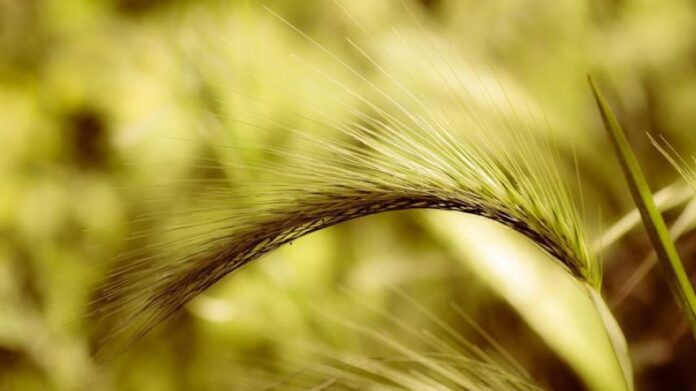Thriving in dry and hot weather, the City of Lethbridge is seeing a spike in Foxtail. While crews do their best to keep it at bay, residents are reminded it can be very dangerous to pets.
Foxtail usually matures in mid-summer forming barbed seed heads. These can become extremely dangerous to dogs and other animals, as they can get lodged in the skin, mouth, nose and eyes. If a dog digests these barbed seed heads, they can cause serious illness or even death.
You can protect your pet by:
- Avoiding areas where Foxtail and other weeds are growing
- If you must go in these areas, keep your dog on a leash at all times
- Trim the hair between your dog’s toes, around ears and their belly
- Check their coat for Foxtail and brush your dog after being outdoors
- Use a netted muzzle
Foxtail is distinctly identified by its tufted head resembling the tail of a fox. Growing in all soil types and moisture levels, foxtail is specially adapted to dry, alkaline soil and can be found in Lethbridge around storm ponds and wetlands, dry lowlands and disturbed sites.
Through the Alberta’s Weed Control Act, Alberta Weed Regulation and the City’s Weed Control Bylaw, certain plants have been identified as noxious weeds.
In Alberta, Foxtail is not designated by legislation as a noxious weed. However, significant efforts are made to control the growth of Foxtail in City parks. Some of these strategies include:
- Increased irrigation in troubled areas: this helps increase the growth of grass and choke out the Foxtail that thrive in dry, hot conditions
- Chemical treatments
- Manual weed pulls
- Mowing and bagging
Since May 1, the City has received fifteen service requests related to Foxtail, all of which are reviewed by the Parks team, assessed, prioritized and followed up with an appropriate action.
If you identify a Foxtail infestation in a City park, please contact 3-1-1, so this can be reported to Parks staff and investigated.







